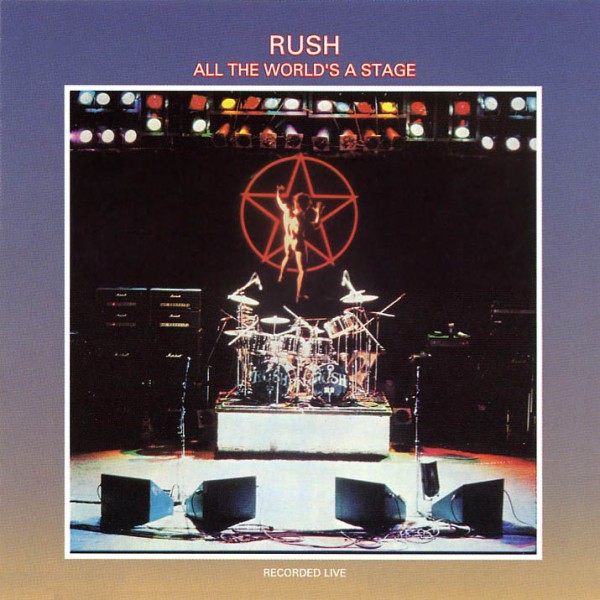Intelligent Music That Rocks
Rush Chooses Brain Over Wallet
By Bruce Meyer, United Press International, June 8, 1977, transcribed by pwrwindows

Face it, rock 'n' roll is music for the gut and the feet - not for the head. That's not to say there hasn't been some intellectually rewarding rock music made over the years, but little of it was really intended to be that way. And, in fact, many rockers who really work at putting some intelligence into their lyrics end up with music that is no longer rock, the gut-level part gets neglected.
So it's good to encounter that rare band that can work with ideas as well as rhythms, whether or not you agree with all the ideas or get off on all the music.
Rush - a hard-driving power trio from Toronto - is such a band.
Rush is five albums old, having first moved into the North American music scene in the summer of 1974. In the past three years singer-bassist Geddy Lee, guitarist Alex Lifeson and drummer Neil Peart have spent a lot of time pumping hundreds of decibels of raw power at their audiences, but they never gave up thinking and experimenting.
Rush's newest album is a live LP, "All The World's A Stage ' But their most recent studio collection is called ''2112" - a semi-concept album that tells the story of a future world devoid of artistic and intellectual pursuits, ruled by computers. Not, perhaps, a world-shaking artistic breakthrough, but a considerably better-than-average effort for a young rock 'n' roll band with a promising future of its own.
Neil Peart thinks a lot about what Rush is trying to tell its young and growing audience. He says the main message is - "be honest. "
"Our music...has to be an honest statement of what we want to hear and what we want to play. Honesty is the keynote, the principle which we try to apply to everything we do - the music, the business, our personal relationships with each other.
"I'd like to think that we are the message in our music - what we are and what we're trying to do. We just want to prove that it's possible to be successful and happy and still be honest. There are so many people doing music that they don't like."
The members of Rush are making music to suit themselves, admittedly within the confines of the hard rock form, but with little regard to popular taste. Rush tunes are rarely dancable despite the heavy beat and Geddy's high piercing voice can sometimes be unpleasant, though always affecting.
"I think something can be progressive and commercial too," says Peart. It's happened before - not enough times, but... well, there's so much involved between those two ideals. The trouble is, when you get successful, nobody believes you didn't want to."
Does Rush really reject success?
"Well, I wouldn't say that but it certainly isn't a priority with us. Like, we're really happy at the level we're at right now, selling around 200,000 records...because as soon as you start selling more, your free time, your time for thinking and writing and messing around starts to disappear. There's a happy medium there somewhere, but I guess you never know it - until you've gone by it.